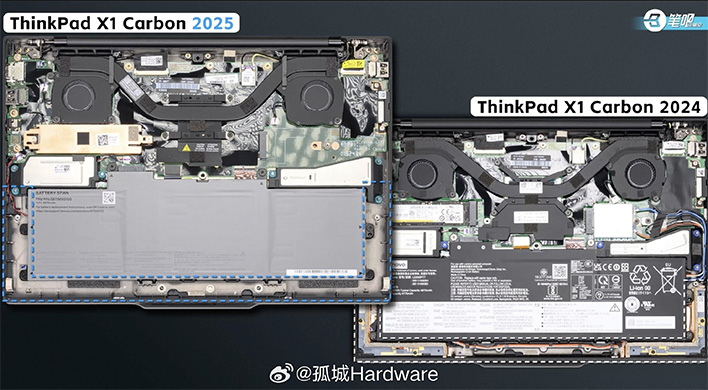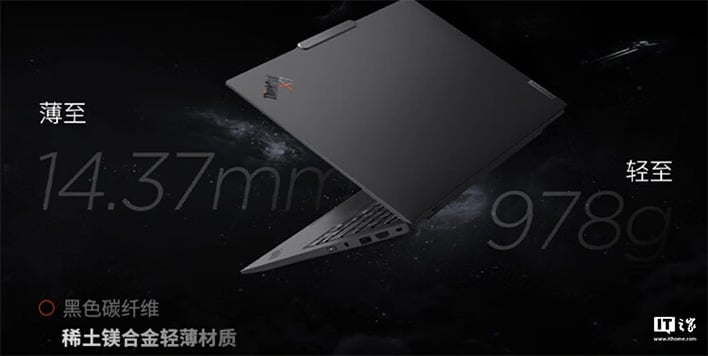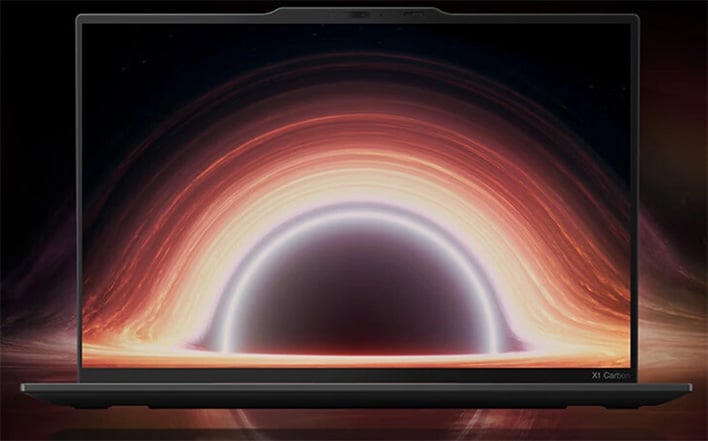You may recall that we stopped by
Lenovo's booth at IFA Berlin earlier this year and sneaked a peek at some of its upcoming ThinkPad and Yoga laptops. One of those models—the ThinkPad Carbon X1 Aura Edition—has launched in China, and one thing what makes it stand out among a sea of laptops and 2-in-1 devices is that it's the first mobile product with a PCI Express 5.0 solid state drive (SSD) inside.
In case you missed our previous coverage, here's our hands-on with Lenovo's unreleased (at the time) laptops at IFA Berlin, including the ThinkPad model with a cutting-edge SSD...
While PCIe 5.0 SSDs have been around for a little bit, they've yet to really establish a big footprint in the desktop space, and have been non-existent in laptops. Until now, that is.
Part of the reason it's taken a bit longer to show up in laptops is likely because of
challenges related to thermals and heat dissipation. Just as it is with CPUs and GPUs, it's far easier to manage heat output in a desktop setting, even in small form factor (SFF) PCs, than it is in laptops. And with PCIe 5 SSDs kicking things up a notch, there's an added challenge.
We can see how Lenovo is accounting for this in a
picture posted to Weibo, which compares an older ThinkPad X1 Carbon to the newest model with a PCIe 5 SSD. In the new model, the drive is covered with a metal heatsink, leading to the poster to conclude that "energy consumption and heat generation are much higher than the old model."
While we can't say for sure until we get one in for testing, it seems like a reasonably assumption to us. The question then becomes where the point of diminishing returns lies. On paper, PCIe 5 SSDs are up to twice as fast as PCIe 4 SSDs. In practice, there are only certain scenarios where that might prove beneficial.
To that end, this is another laptop that's primed for AI. It's built around Intel's Core Ultra 7 258V processor, which is an eight-core
Lunar Lake processor clocked at up to 4.8GHz, with 12MB of L3 cache and an onboard NPU pumping out up to 47 TOPS.
It also features 32GB of LPDDR5X-8533 memory, 1TB or 2TB of storage, a 57Whr battery that's rated to deliver up to 18 hours of run time, fairly robust I/O connectivity (1x HDMI 2.1, 2x USB-A at 5Gbps, 1x Thunderbolt 4/USB-C, a 3.5mm audio jack, and a SIM card slot.
The display is also a high point. It's a 14-inch OLED screen with a 2880x1800 resolution, 120Hz refresh rate, and 500 nits of peak brightness (HDR), along with serving up 100% coverage of the DCI-P3 color space.
According to
ITHome, Lenovo's
ThinkPad X1 Carbon Aura Edition will sell for 15,999 Chinese Yuan for the 1TB PCIe 5 SSD model and the 17,999 Chinese Yuan for the 2TB variant. While companies don't typically stick with straight currency conversions from one territory to the next, those values equate to around $2,200 (1TB) and $2,475 (2TB) in US dollars.





